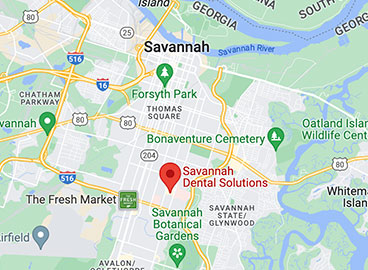The temporomandibular joint disorder is a debilitating pain in the jaw joint. Since we all talk, eat and drink, the jaw joint is frequently used throughout our everyday lives, which is why we say it’s a “debilitating pain” instead of just an annoying pain. For somebody who has never experienced TMJ disorder in the past, an unexpected flare-up can be pretty alarming, causing added anxiety on top of the joint pain. Excessive strain on the jaw joints and the muscle group that controls chewing, swallowing, and speech is almost always the primary reason anybody suffers from TMJ disorder or has a TMJ flare-up.
Known causes are unbridled and liberal use of chewing gum, overeating, and even bruxism, or nighttime teeth grinding. If you find yourself chewing a lot of gum and feeling joint pain in your jaw, cut back, and your pain will subside in just a few days. Overeating is similar, so long as you don’t continue to eat hard foods frequently beyond the first signs of pain. For those suffering from bruxism, the timeline is a little less clear…
Bruxism
Grinding your teeth in your sleep can cause an array of issues for your gums and teeth, including abnormal decay, rapid tooth dulling, and destruction of bridges and crowns. Those are the obvious issues, but people rarely think about the damage being done by the constant pressure on the jaw line. Though incredibly strong, the joints in your jaw still have their limitations. Unfortunately, most people aren’t aware of their nighttime grinding unless a partner hears them or they start to develop TMJ. Bruxism can be treated as the underlying cause is frequent stress and anxiety. Seeking a therapist or counselor, medication, and meditation can help with stress and anxiety. In many cases, the bruxism goes away as mental health improves, but sometimes that’s after the damage has already been done.
Temporomandibular Joint Disorder
TMJ disorder is most frequently the result of bruxism. The longer the bruxism is left untreated, the more strain and potential damage the jaw joints endure. The pain associated with a flare-up can last from days to weeks. The most common noticeable symptoms during a TMJ disorder flare-up include pain in the jaw line, ear aches, toothaches, headaches, facial swelling, and limited jaw range of motion. Sometimes people experience lockjaw and pain in the neck/shoulder area! There are documented cases of consistent pain being managed with over-the-counter painkillers for years. In those scenarios, the person suffering never treated the actual issue – the bruxism.
Bruxism isn’t the only dental problem that can cause TMJ pain. Teeth that are badly misaligned can result in awkward chewing habits and unhealthy resting mouth positions. The bad habits and forced positioning at rest will inevitably put undesired stress on the jaw joints, resulting in eventual TMJ pain from constant stress.
Drs. Chad & Alexandra Schnabel of Savannah Dental Solutions are no strangers to dealing with patients suffering from TMJ disorder due to bruxism or poor tooth positioning. We encourage anybody with more than a few days of jaw pain to stop in so we can examine the issue. Waiting too long will undeniably cause even longer recovery times and can end up hurting your wallet in the long run.
Treating bruxism early can be the difference between an uncomfortable week or a year. Give us a call to set up a preliminary appointment at 912-354-1366 or check out the other ways to contact us from our website. Since we are pleased to offer early morning and late afternoon appointments to accommodate your busy schedule, we hope you don’t suffer from TMJ pain for too long!






